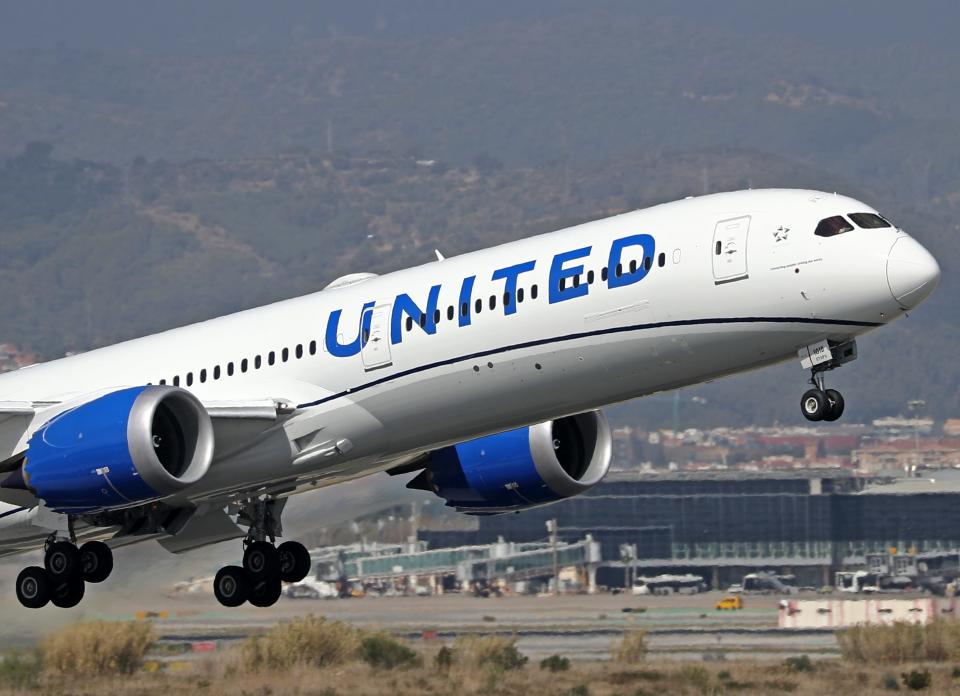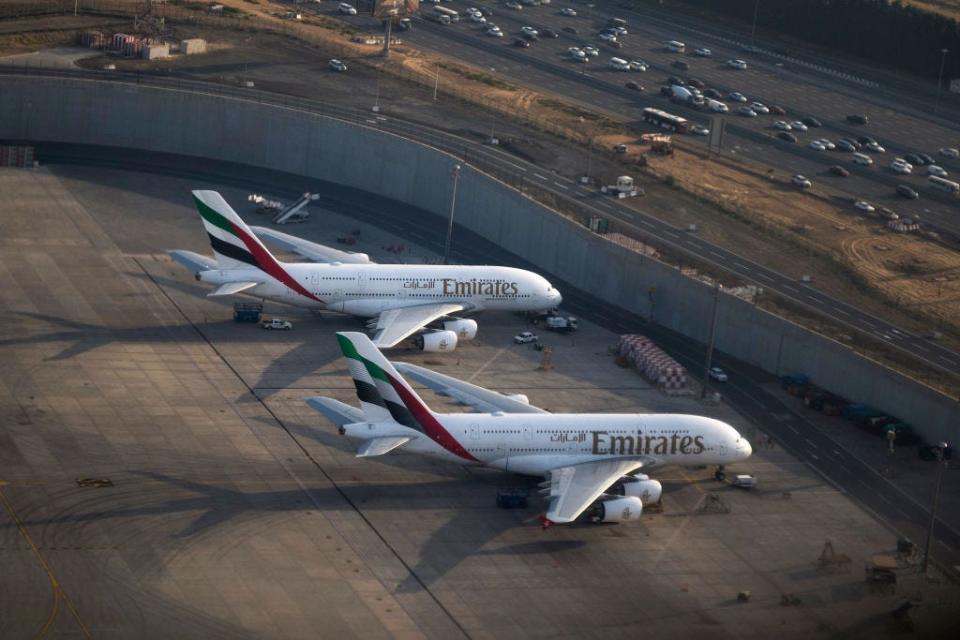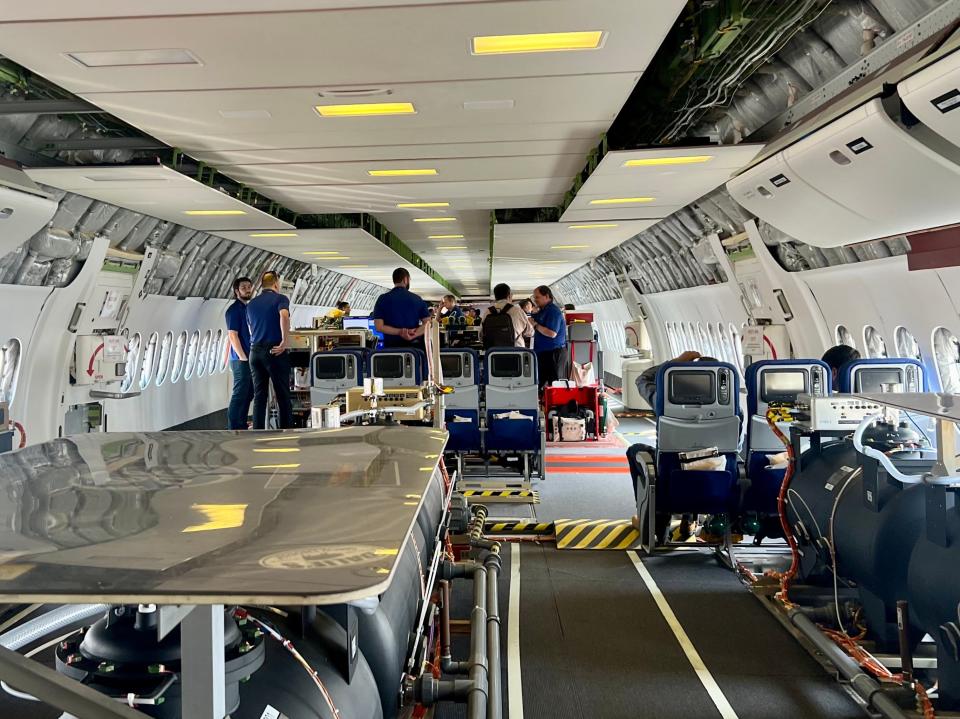-
So far, no US airline has purchased Boeing’s yet-to-be-certified 777X widebody.
-
A United Airlines executive told BI the jet is too big for the airline’s multi-hub network.
-
He said the 777X better suits carriers with one central hub, like Emirates and British Airways.
Despite 481 orders from airlines around the world, Boeing can’t sell US carriers on its new widebody jetliner.
A United Airlines executive says that’s because the upcoming 777X — the world’s largest twin-engine plane in production — is simply too big for what the airline needs.
“We think the 777X will be a very good airplane, but it is a very big airplane,” SVP of global network planning and alliances, Patrick Quayle, told Business Insider. “Given our hub structure, we find a smaller widebody is actually better.”
United has seven hubs across the US, including Chicago, Houston, Washington DC, San Francisco, Los Angeles, Denver, and Newark, New Jersey, Quayle explained.
Such a wide network allows the airline to split its passenger traffic by serving the same destination from multiple hub cities instead of shuttling them all through one central airport, he said.


Quayle pointed to its London and Syndey service, saying the British capital is served 22 times a day from all seven United hubs, while Sydney has flights from San Francisco, Los Angeles, and Houston.
“We’re not taking people from the west coast, flying them to the east coast, and then flying to London,” he said. “We’re flying nonstop from the West Coast, nonstop from the mountain region, nonstop from Houston and Chicago, and nonstop from the East Coast.”
United’s widebody fleet consists of the Boeing 767, the classic 777, and the Boeing 787 Dreamliner. Since 2022, the airline has amassed a record 150-strong 787 order book to replace its 767s and some 777s.
United already flies more than 70 Dreamliners across all three variants, which come in small, medium, and large, and have varying ranges — giving United added route and capacity flexibility.
The 777X is better for United’s central hubs
The 777X is intended to replace Boeing’s aging 747 and the Airbus A380 as a more efficient, high-capacity long-haul jetliner.
Quayle said the 777X’s immense size is better suited for airlines with one giant central hub, like Emirates in Dubai, Qatar Airways in Doha, Cathay Pacific in Hong Kong, and British Airways in London Heathrow. All of these airlines have ordered the 777X.
“Everything is out, and everything is back, and it’s all through these massive connecting complexes,” Quayle said. “The reason American, Delta, and United didn’t order the 747-8 or the A380 is for this very situation in that the traffic is fragmented and splintered.”


It’s unclear if the other Big 3 US carriers will order the 777X. Neither American nor Delta have confirmed any orders.
American recently ordered 260 new Airbus, Boeing, and Embraer planes, which did not include any widebodies to complement its existing 787 and classic 777 fleets. It’s currently overhauling its 777 cabins as well.
Delta retired its classic 777s during the pandemic and is currently flying the 767, old and new A330 variants, and the 777X’s competitor, the Airbus A350.
Delta purchased the A350-900 — which holds more than 100 fewer people in two cabins compared to the 426-seater 777X — in 2014 as a replacement for its larger widebodies, including the Boeing 747-400.
Boeing’s 777X is in certification limbo
While there is a lot of stake in the future 777X, Boeing is struggling to get it certified.
The jet is already at least five years behind schedule, $1 billion over budget, and certification testing was paused in August over a structural issue.


“During scheduled maintenance, we identified a component that did not perform as designed,” Boeing previously told Business Insider. “Our team is replacing the part and capturing any learnings from the component and will resume flight testing when ready.”
Qatar and Emirates have previously said they are expecting a 2026 delivery for their respective first 777X planes.
Once the 777X is finally certified, airlines can take advantage of its revolutionary folding wingtips, and passengers can expect onboard upgrades like a more spacious cabin and unique lighting that resembles the sunset or the northern lights.
Read the original article on Business Insider
